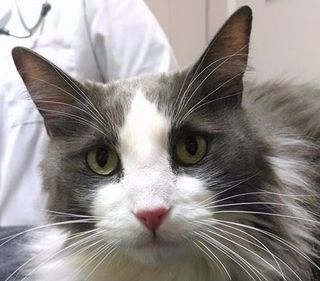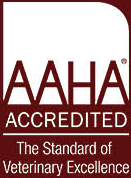Blog Layout
Subtle Signs Of Glaucoma
Rebecca Schmidt • Jan 16, 2016
The challenge for cat owners is early recognition of symptoms. Sometimes the signs of glaucoma can be very vague, such as the cat sleeping more or acting a little head shy when you pet your cat on the top of the head. If your cat squints or there is increased eye tearing, take a closer look. Does he/she have a red eye with a cloudy blue tint to the surface and a dilated pupil? These could be signs of glaucoma that require immediate treatment to avoid significant or complete loss of vision. Because of the subtle nature of the symptoms, some cats don’t have a veterinary examination until substantial damage has occurred. A veterinarian can test the pressure of your cat’s eye and detect a problem before the problem is visible to you.
Pain can cause a cat to be very wary of petting. Pain associated with glaucoma is commonly compared to the constant pain of a headache. You can still function but your head hurts. Some cats may show only some of the signs. Glaucoma is a medical emergency. Quick identification by a veterinarian can save your cat’s vision or eye.
Glaucoma develops when a watery fluid called the aqueous humor in the front of the eye is unable to drain correctly. The fluid builds up within the eye and puts pressure on the retina and optic nerve leading from the eye to the brain. If the condition progresses without treatment, it is likely to result in permanent and total blindness.
Some symptoms of glaucoma are:
- Recession of the eyeball into the head
- Redness of the blood vessels in the white of the eyes
- Cloudy appearance at front of the eye
- A dilated pupil or one that doesn’t respond to light
- Vision loss
- Loss of appetite
- Change in attitude, less desire to play or interact
- Enlargement of the eyeball
- Squinting or holding the eyes closed
Cats with glaucoma typically are managed medicinally. Your veterinarian will prescribe multiple medications to lower the pressure within the eye and return it to the normal range as quickly as possible to salvage vision.
When glaucoma is identified early and your veterinarian is able to manage the condition, regular examinations will be needed to monitor the pressure within the eye.
BROWSE OUR WEBSITE
CONTACT INFORMATION
Phone:
847-680-1770
Fax:
847-680-1775
Address:
295 Peterson Road
Libertyville, IL 60048
Business Hours:
- Monday
- Closed
- Tue - Fri
- -
- Sat - Sun
- Closed
Content, including images, displayed on this website is protected by copyright laws. Downloading, republication, retransmission or reproduction of content on this website is strictly prohibited. Terms of Use
| Privacy Policy




